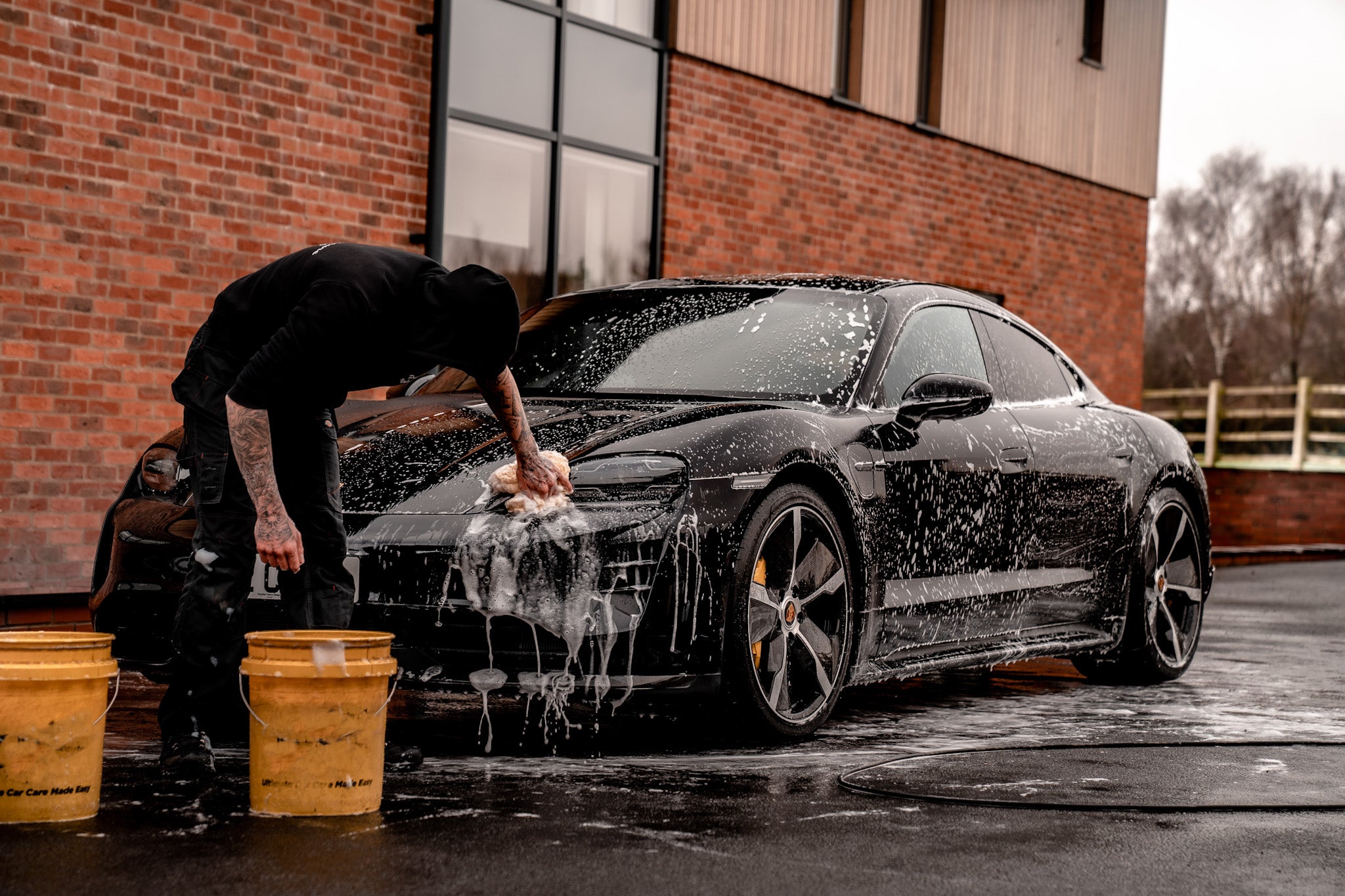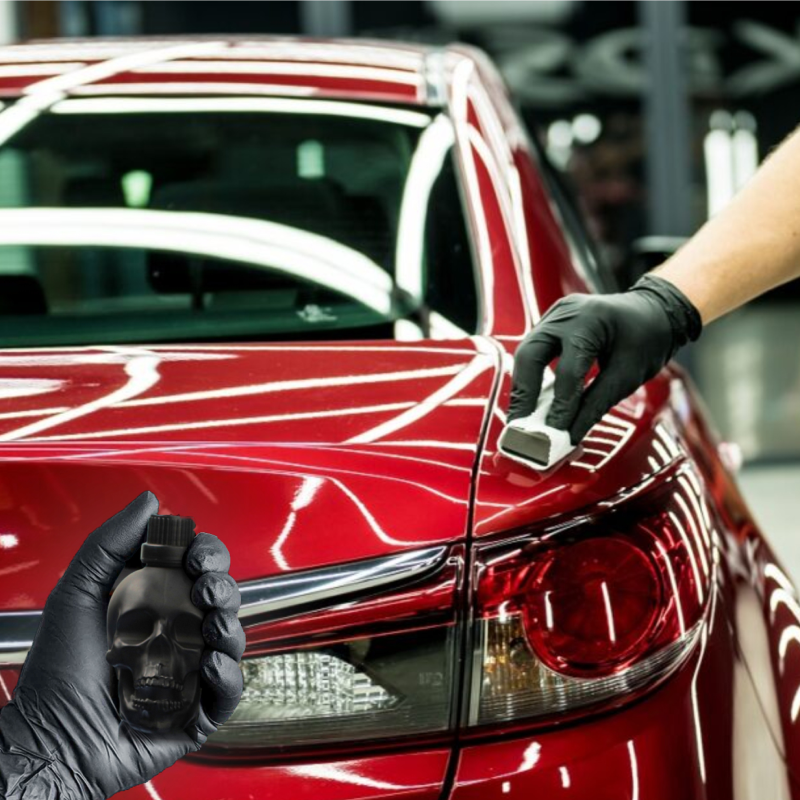Get high-quality ceramic coating Sarasota to safeguard your car’s paint.
Wiki Article
A Comprehensive Overview to the Kinds of Ceramic Layer on the marketplace
Ceramic coatings have actually become an essential service across different sectors as a result of their special residential or commercial properties and applications. From silica-based formulas understood for their toughness to crossbreed alternatives that combine multiple benefits, the selections offered can be frustrating. Understanding the subtleties of each type, including their certain advantages and excellent usage cases, is essential for making educated choices. As we check out the distinct qualities and applications of these finishings, the implications for efficiency and long life become significantly obvious, questioning regarding which kind could best suit your requirements.Understanding Ceramic Coatings
Ceramic coverings are sophisticated protective services that have actually obtained popularity in various markets, especially in auto and aerospace applications. These layers include a liquid polymer that, when cured, forms a sturdy, hydrophobic layer on the surface area of the substrate. This layer gives boosted resistance to ecological pollutants, UV radiation, and chemical exposure, thus extending the life and visual appeal of the underlying product.The basic part of ceramic layers is silica, which contributes to their firmness and toughness. The application procedure normally involves surface area prep work, application of the layer, and treating, which can be achieved through heat or UV light. Once cured, ceramic coatings exhibit exceptional bonding residential properties, allowing them to adhere highly to a range of surfaces, including steels, plastics, and glass.
In enhancement to their protective functions, ceramic layers additionally provide ease of upkeep. Their hydrophobic nature reduces the adherence of dirt and grime, making cleaning less complex and less constant. Generally, the fostering of ceramic finishes represents a substantial improvement in surface defense innovation, providing both useful and aesthetic advantages across multiple fields.
Types of Ceramic Coatings
Numerous sorts of ceramic finishings are available, each made to fulfill details performance demands and applications - Auto Detailing. One of the most typical kinds include:Silica-based Coatings: These finishes largely contain silicon dioxide and are understood for their durability and chemical resistance. They are commonly used in automotive and industrial applications.
Titanium Dioxide Coatings: Renowned for their photocatalytic properties, titanium dioxide finishes are often applied in environments where self-cleaning and antifungal homes are desirable, such as in building products and automotive surfaces.
Zirconia Coatings: Defined by their high-temperature stability and thermal resistance, zirconia finishings are used in applications such as wind turbine engines and high-performance vehicle components.
Alumina Coatings: Displaying outstanding firmness and thermal stability, alumina finishings are regularly made use of in wear-resistant applications, including reducing devices and industrial machinery. - Paint Protection Film
Crossbreed Coatings: Integrating the homes of numerous products, hybrid finishings offer improved efficiency features, making them suitable next for special and requiring applications.
Each sort of ceramic covering serves distinct objectives, allowing individuals to choose one of the most suitable remedy based upon certain ecological conditions and efficiency requirements.
Benefits of Ceramic Coatings
Coatings play an important duty in improving the efficiency and longevity of surface areas throughout various sectors. Ceramic finishings, in certain, offer many benefits that make them significantly popular among suppliers and consumers alike. Among the key advantages is their exceptional toughness. These coatings are resistant to scrapes, chemicals, and UV rays, guaranteeing that the underlying surface area remains safeguarded in time.Along with sturdiness, ceramic layers supply exceptional hydrophobic properties, enabling easy cleansing and maintenance. This water-repellent nature reduces the adherence of dust, grime, and other impurities, which can lengthen the aesthetic allure and functionality of the surface. Additionally, ceramic finishes can considerably improve thermal resistance, making them ideal for applications that endure high temperatures.

Application Process
When using ceramic coatings, a meticulous method is necessary to attain ideal outcomes. A clean surface area makes certain proper attachment of the finishing.As soon as the surface is prepped, the next action is to apply the ceramic finish. The coating must be used in thin layers, as thicker applications can lead to uneven surfaces.
After application, the covering requires a certain curing time, generally ranging from a couple of hours to a full day, depending on the product. Adhering to these actions vigilantly will make the most of the effectiveness and long life of the ceramic finishing, offering a sturdy safety layer for the surface.
Upkeep and Durability
To make certain the durability and effectiveness of a ceramic finish, routine maintenance is important. Ceramic layers, understood for their toughness and protective high qualities, need certain treatment regimens to optimize their life expectancy and performance.In enhancement to routine cleaning, routine assessments are essential. Search for signs of wear or damage, such as hydrophobic homes lessening or surface area blemishes. If required, a light gloss may be related to renew the layer without removing it away.
Furthermore, the application of a booster spray can enhance the finish's hydrophobic impacts and recover its gloss. This is especially helpful for layers that have remained in usage for an extensive period. Inevitably, by sticking to these upkeep techniques, one can significantly extend the life of a ceramic finish, ensuring that it remains to give optimum defense versus ecological variables and keep the visual charm of the car.
Conclusion

Report this wiki page